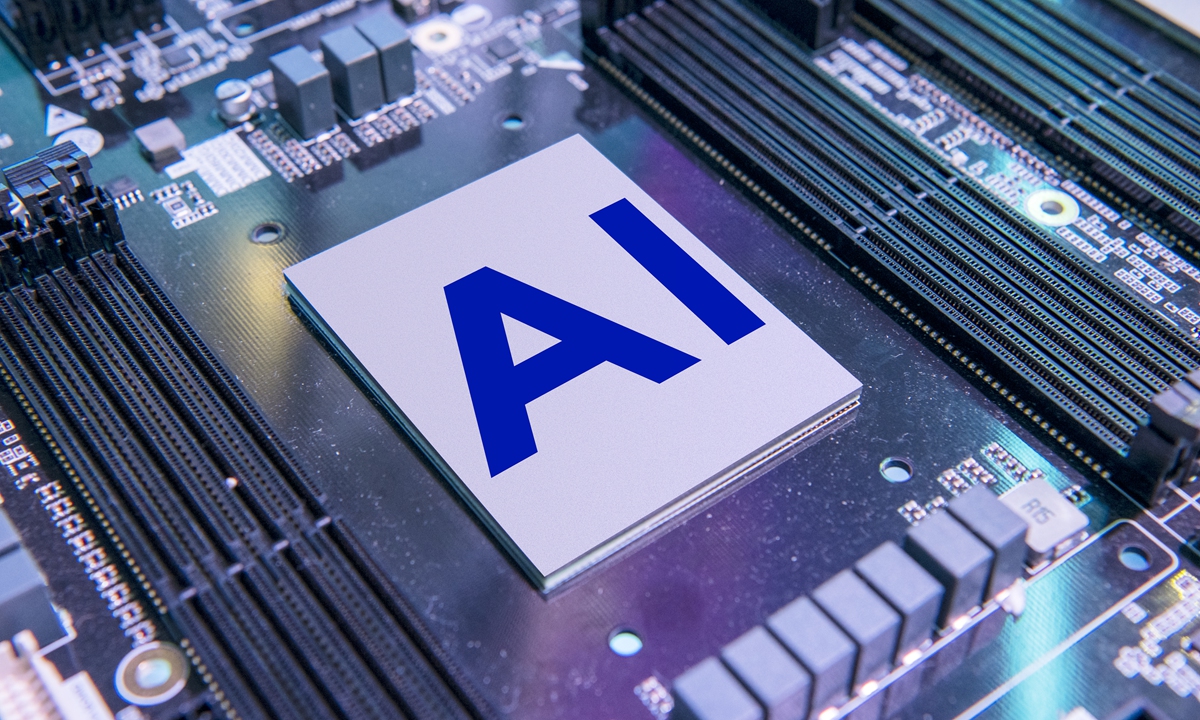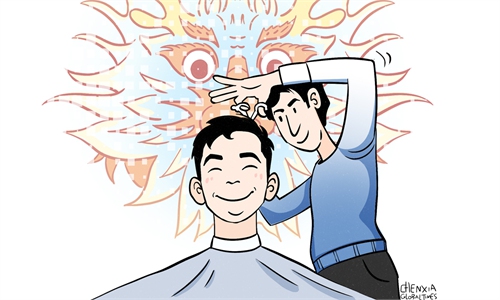ARTS / CULTURE & LEISURE
Is AI-facilitated digital ‘afterlife’ a blessing for families?

Photo:VCG
With China's traditional festival Qingming, or Tomb Sweeping Day, coming in April, artificial intelligence (AI) has offered people a new way to "connect" with their late family members.Devastated by the passing of his daughter at the age of 22, Tino Bao, a musician from the island of Taiwan, reportedly "resurrected" his daughter in February using audiovisual materials. His digitally revived daughter can sing, dance and talk to Bao.
Earlier, a graphic designer in Central China's Hubei Province used AI tools to generate a digital replica of his grandmother, and his video conversation with her touched a chord with many netizens on Chinese social media platforms while also triggering heated discussions.
In the video, his grandmother, with gray hair and no teeth, speaks in a local dialect and "nags" him with lifelike movements just like she used to do when she was alive.
Some people say that these creations are meaningful as they can serve as a way for the bereaved to deal with grief. However, others feel that it's unnecessary to turn departed loved ones into digital avatars, as it feels like manipulating electronic dolls.
From an emotional perspective, "resurrecting" loved ones using AI may receive widespread understanding from people. However, we must also be vigilant about potential risks such as privacy breaches, infringement and fraud.
Experts say that AI avatars could offer comfort but warn that more research is needed to understand their psychological and ethical implications.
Currently, it takes as little as 50 yuan ($7) to digitally resurrect a deceased individual using the service provided on China's e-commerce platform.
"We make photos and audio recordings of the deceased into AI to train it to simulate voice and tone of the deceased. Our technology is rudimentary. We solely focus on relieving grief and refrain from doing facial recognition in case that would violate the law, a service agent surnamed Xu on e-commerce platform Taobao told the Global Times.
When technology is commercialized, it also involves issues of privacy protection, data security, and regulatory oversight of service quality. Unauthorized use of AI technology in "reviving" the deceased may constitute infringement. If these service providers fail to take sufficient security measures, users' photos and video information could be leaked and exploited for unlawful purposes. Moreover, the technology could potentially be utilized to create deceptive videos for fraudulent activities.
Zhu Shan, a deputy to the National People's Congress and director of the Gui Da Law Firm in Southwest China's Guizhou Province, told the Global Times that an open and inclusive management approach should be adopted when dealing with this new technology.
"It's encouraging to experiment with technological innovations in dealing with grief and loss, but we need to strengthen legal regulation if the new technology develops into an industry," said Zhu.
Zheng Ning, a law professor with the Communication University of China, advised people to sign a contract with providers of AI resurrection technology before authorizing their services.
Laws need to keep up with the development of new technology to ensure the effectiveness of the services and that users' personal information is not abused. Corresponding regulations and standards are required to prevent AI products from infringing on the legitimate rights of others or being used for fraudulent activities. Regulatory authorities need to promote the establishment of industry standards to ensure both technological innovation and the protection of human values and dignity, according to Zheng.
While AI "resurrection" services may partially fulfill the psychological needs of certain groups, they cannot replace genuine human relationships. The depth of human emotions are something no technology can replicate. Therefore, while we should acknowledge technological advancements, we must also approach it rationally.
No matter where this technology may lead us, whether in life or in death, it serves as a poignant reminder to cherish the precious and transient moments we have with our loved ones in the present, before we turn to digital advancements.
The authors are reporters with the Global Times. life@globaltimes.com.cn



